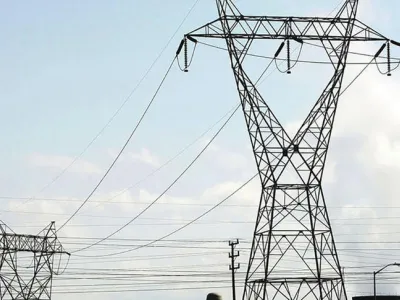CUB recommends the PUC deny Minnesota Power's petition to recover lost revenues

Published January 12, 2021
The economic fallout of the COVID-19 pandemic continues to impact Minnesotans in multiple ways. Among those impacts, the pandemic (and related restrictions issued globally to help slow its spread) has contributed to fluctuating demand for steel and declining demand for paper. This, in turn, has recently caused several of Minnesota’s large industrial mining and paper facilities to suspend (or “idle”) their operations. These facilities are large employers and economic contributors in several Northern Minnesota communities, and their idling has strained already fragile economies. Residents of these communities may be surprised and disappointed to learn they may now be asked to pay for electricity they neither used nor demanded to make up for their local utility’s inability to sell electricity to industrial customers idled during the pandemic.
t9.4.09 Bob King -- kingPOWER0905c9 -- Transmission lines carry power from the Boswell Energy Center to a station where it can be converted to multiple voltages and fed to residential and industry customers.Minnesota Power, the public utility that provides electricity to much of Northern Minnesota, recently filed a petition with the Minnesota Public Utilities Commission (the “PUC”) seeking permission to increase rates on some customers to make up for certain revenue losses it has experienced during the COVID-19 pandemic. Specifically, it seeks to document lost revenues resulting from the idling of two of its largest customers: the U.S. Steel taconite mine in Keewatin (“Keetac”) and the Verso paper mill in Duluth (“Verso”). If the PUC approves the request, Minnesota Power will be permitted to calculate the amount of revenue it could have earned from these two facilities had they been operating normally, then try to recover that amount from other Minnesota Power customers through future rate increases.
In other words, some Minnesota Power customers (including, we fear, residential ratepayers) may be asked to foot the bill for energy they neither used nor demanded to make up for Minnesota Power’s inability to sell electricity to the Keetac and Verso facilities.
CUB filed comments on January 7, 2021, recommending the PUC deny Minnesota Power’s petition. Our comments focused, in large part, on what we find to be the utility’s extraordinary, unprecedented, and highly unreasonable attempt to shift its financial risk onto struggling consumers so that it can continue to pay steady distributions to its shareholders at a rate-per-share higher than in any recent year.
- Though Minnesota Power claims lost revenue attributed to the idling of Keetac and Verso will prevent it from earning its authorized rate of return for its shareholders, Minnesota Power’s board of directors has, so far, continued to authorize $32 million in shareholder distributions following each quarter of 2020.
- A shareholder distribution the board authorized in July 2020 represented 159 percent of the net income the Company reported earning in that quarter. Minnesota Power’s ratepayers are not guarantors of the utility’s ability to continue making aggressive distributions to appease shareholders.
- Though Minnesota Power claims it could not have foreseen the impact of Keetac and Verso idling during the pandemic, the utility has repeatedly, over many years and immediately prior to the onset of the pandemic, warned its shareholders that an economic downturn affecting its large industrial customers could cause its revenues and operations to suffer.
- Minnesota Power has previously navigated far more significant economic downturns and revenue losses without making a similar request to recover lost revenues from other customers.
- Though Minnesota Power claims it could lose up to $32 million in revenue over the course of 2020 and 2021 if Keetac and Verso remain idled throughout that period, it is already clear the utility vastly overstates its projected losses. Keetac announced the day after Minnesota Power filed its petition that it would be resuming operations in December 2020, and the facility is now operating.
- Minnesota Power claims it has lost revenue in furtherance of a public policy mandate (Governor Walz’s orders imposing restrictions meant to slow the spread of COVID-19). However, Governor Walz’s orders only indirectly relate to the declining demand for steel and paper. No administrative, political, or regulatory mandate directly required Minnesota Power to collect less revenue in furtherance of a public policy interest.
- When early indicators suggested the COVID-19 pandemic would have significant economic consequences throughout Minnesota (and globally), Minnesota Power agreed to withdraw a prior rate case and to stay out of a new rate case until at least March 2021. Minnesota Power’s attempt to now track lost revenues to try to retroactively recover them in a future rate case violates the spirit and purpose of that agreement.
The regulation of public utilities is complex. Utilities provide a service essential to most consumers. But, because vast areas of the state are served by a single public utility, captive customers living in those areas have no choice, other than moving or going off the grid, to obtain a different electricity provider. To prevent utilities from abusing this position, Minnesota law requires public utilities to charge customers rates that are “just and reasonable” and to resolve any doubt as to reasonableness in favor of the consumer.
Make no doubt about it, Minnesota Power’s petition would set the stage for the utility to impose an unjust and unreasonable rate increase on its customers and should be denied.